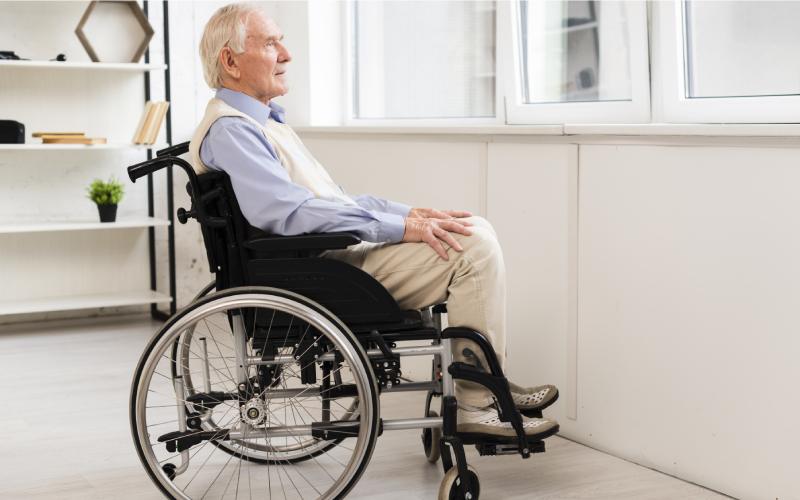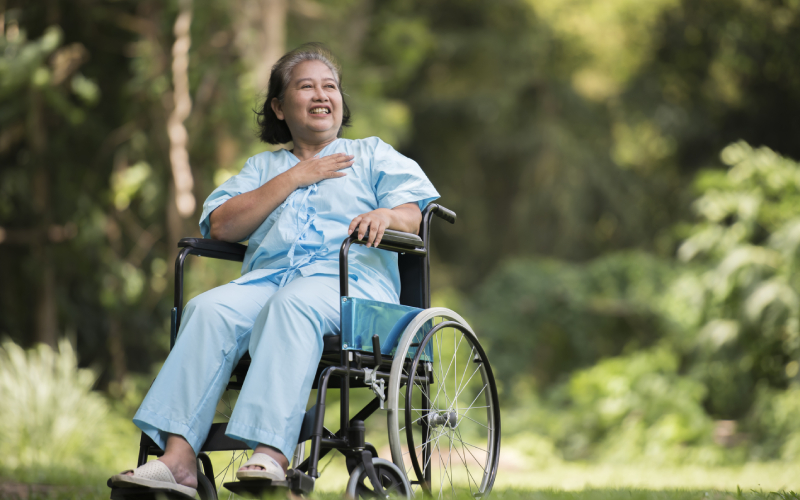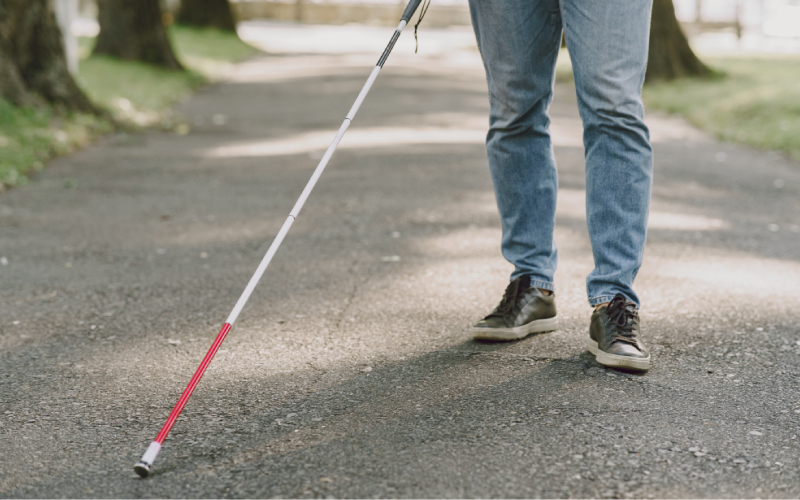



Article 26 (Habilitation and rehabilitation) of the Convention on the Rights of Persons with Disabilities stipulates that States Parties shall promote the availability, knowledge and use of assistive devices and technologies, designed for persons with disabilities, as they relate to habilitation and rehabilitation. In addition, Article 4 (General obligations), Article 20 (Personal mobility), and Article 32 (International cooperation) require Member States and the international community to invest in facilitating access to good-quality assistive technology, for instance by making them available at affordable cost
Assistive technologies (ATs) play a significant role in enabling people with disability (PwDs) to function and participate. ATs include low-vision devices, hearing aids, augmentative and alternative communication, walking frames, wheelchairs, and prostheses such as artificial legs. This also covers information and communications technologies such as computers, screen-reading software and customized telephones.
Trust Cradle (NGO), following the directives and policies laid down by WHO, has been continuously working towards raising awareness, imparting knowledge and taking actions to make ATs available to PwDs, since close to two decades. The NGO has been doing so through targeted communication and media campaigns, developed in conjunction with organizations of persons with disabilities, as well as supporting education and training by promoting and encouraging the integration of disability into relevant undergraduate curricula and continuing education for service providers
Trust Cradle, spearheaded by Shri Bipin B Choudhury, understands that disability is a complex and multidimensional condition that requires appropriate combination of medical interventions, use of assistive technologies, enabling environment and social support networks. Mr Choudhury, through his NGO, has been advocating the inclusion of PwDs and their family members into the mainstream civil society, by working closely with policy and decision-makers - through various awareness programs and events over last many years. He understands that the need of the hour is a focused approach to not only expand the reach of ATs for managing disabilities, but also promote awareness and understanding of the rights of PwDs.
Technology is helping human beings in almost every way, including addressing and alleviating every-day problems faced by PwDs (Persons with Disabilities) - particularly rehabilitation in the field of education, employment and social inclusion. As per WHO’s estimates, >10% of the PwDs receive any such support from the governments or other organisations. WHO has identified 50 high-quality affordable assistive devices, termed as Priority Assistive Products List (APL), and aims to make them an integral part of universal health coverage of the member states.
Trust Cradle’s years of on-field experience shows that >10% of PwDs in need have access to AT products – reasons being lack of awareness and trained personnel, as well and limited availability of products, high costs and inadequate financing.
In December 2017, ICMR alongwith WHO’s support and in association with Trust Cradle (NGO) organized a two-day Stakeholders’ Consultative Workshop on “Managing Disabilities: Role of Assistive Technologies (ATs)”. The objectives of the Workshop were:
WHO further suggests, in order to have maximum impact, APL needs should be supported with additional policy and legislation, resources, and skill development/training of personnel working with health services and social welfare. Hence, WHO is in the process of developing tools and mechanisms to:
In India, in spite of campaigns such as Accessible India, Smart Cities and Make in India, the awareness level on assistive products and technologies remains low. The policy framework, standardization for production and provisioning & financing framework are yet not being deliberated at any forum, whereas, many countries in developing world have taken a lead. The workshop aims at creating awareness, identifying needs, and providing solutions and implementation strategies to improve accessibility of assistive products among PwDs, NCDs and older persons.
With this as the working ground, ICMR, under support of WHO-SEARO and in association with Trust Cradle, organized workshops for stakeholders/experts across field for constrictive deliberations and for deriving modalities to make the visions of WHO workable from state and community perspective. As the promotion of access to assistive products to people in need has diverse domains-legislation/policy framework, production of context-friendly appliances and services, provision of delivery system and financial support, and manpower training for manufacturing and maintenance etc, experts from various fields are invited.
These workshops were set up to form advisory materials for WHO, other UN Agencies, Govt. of India and all the stakeholders - users, care givers, hospitals, NGOs, technical institutions/experts, manufacturers, and financial institutions.
The workshop was organized over 2 days, and consisted of presentations, discussions, evidence consideration, and group work. Participants included members from the Indian Council of Medical Research (ICMR), MoHFW, MoSJE, MEiTY, MoS&T, WHO, Indian Country Office and South East Asia Regional Office (SEARO), Trust Cradle and its associate organizations, IITs, Representatives from States & NGOs.
Focus Group Discussions were also held to make a list of evidence-based priorities for action on ATs, as well as about developing model framework for WHO-identified APL, for Member States to be able to develop their own APL as per their national needs, priorities and resources.
The WHO’s GATE Initiative on Assistive Products is well-launched, but needs to be made broad-based to instill creativity, sustainability and acceptability and also to grow further as movement to make it accessible to everyone everywhere. The WORKSHOP may prove a sincere beginning for converting GATE Initiative into a reality in India.
AIMS AND OBJECTIVES OF WORKSHOP WERE:
Establishing a warehouse in Central Delhi at the Trust Cradle office:Make available appropriate assistive technologies that are safe, of good quality and affordable
1 bn people globally need assistive products today and more than 2 bn people are expected to need at least one assistive product by 2030 – WHO. However, only 1 in 10 out of them currently have access – resulting in many missed opportunities for PwDs to participate in society.
Despite the global need and recognized benefits of assistive products, access to assistive products remains limited. Addressing this unmet need is essential to progress towards the achievement of the Sustainable Development Goals and realizing the Convention of the Rights of Persons with Disabilities. The Priority Assistive Products List by WHO, aims towards increasing access to high-quality affordable assistive products as an integral component of universal health coverage.
To address and fulfil this guideline, Trust Cradle proposes to build a showcase of AT products at its office located in Connaught Place, Central Delhi. The aim of this centre is to: